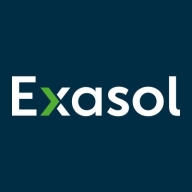

MySQL and Exasol Data Warehouse are competing data storage solutions. Exasol appears to have the upper hand in analytics and speed for advanced data processing, whereas MySQL is favored for its cost-effectiveness and versatility in application support.
Features: MySQL supports a wide range of platforms, is known for its integration with LAMP/WAMP stacks, and provides easy setup with Memcached, enhancing performance and scalability. It is an open-source solution offering high flexibility and support for complex querying requirements. Exasol provides excellent scalability and high-performance analytics, especially for large data sets, making it suitable for heavy analytic workloads. Its real-time analytics capabilities ensure quick data processing and insight generation.
Room for Improvement: MySQL's performance can degrade with massive data volumes, and it lacks some advanced analytics features found in purpose-built data warehouses. Its storage engine architecture, while adaptable, might benefit from additional optimization for large data sets. Exasol could enhance its flexibility for various development environments and improve ease of integration with diverse application stacks. The complexity of setting up Exasol for smaller-scale environments may be reduced to appeal to a broader range of users.
Ease of Deployment and Customer Service: MySQL benefits from a straightforward deployment process, supported by extensive community resources and documentation. Its widespread usage ensures a wealth of tutorials and support materials. Exasol deployment can be complex due to its focus on substantial analytic operations, but it offers dedicated customer support to assist users through the process.
Pricing and ROI: MySQL's open-source nature and no licensing cost result in low initial expenses and a positive ROI, especially in simpler environments. Exasol, though requiring a higher initial investment due to its premium analytic features, delivers improved ROI through efficient data processing for data-intensive operations, justifying the cost by providing valuable insights and advanced capabilities for users excited about data-driven decision-making.
| Product | Market Share (%) |
|---|---|
| MySQL | 7.3% |
| Exasol Data Warehouse | 1.3% |
| Other | 91.4% |


| Company Size | Count |
|---|---|
| Small Business | 1 |
| Midsize Enterprise | 1 |
| Large Enterprise | 6 |
| Company Size | Count |
|---|---|
| Small Business | 73 |
| Midsize Enterprise | 31 |
| Large Enterprise | 61 |
Exasol is a high-performance data warehouse solution that accelerates BI and reporting features. Its speed, stability, and self-tuning queries make it valuable, and it doesn't require a database administrator. It's a backend database for Tableau dashboards, resulting in faster report loading times and increased efficiency in querying data.
Exasol's high performance allows users to connect insights and fire queries instead of looking at cached dashboards. It has impressive aggregation capabilities that help calculate metrics on the fly based on user-selected filters.
MySQL is an open-source database known for its ease of use and high performance. It offers features like replication and clustering, making it ideal for diverse applications. Its cost-effectiveness and LAMP integration are key advantages for businesses.
MySQL supports a variety of languages and platforms, providing reliable, scalable data management. Its graphical interface and LAMP architecture integration enhance its usability, while community support further strengthens its appeal. Challenges include scalability issues with large databases, lack of advanced clustering, and limited high-availability features. Complex queries may affect performance, and integration can pose difficulties. The outdated interface and insufficient documentation are also concerns, along with replication and backup reliability issues.
What are MySQL's key features?MySQL is widely implemented in industries such as web development, e-commerce, and finance. It's used for managing dynamic websites, powering e-commerce platforms, and supporting financial applications. Its compatibility with PHP and cost-effectiveness make it suitable for CMS platforms like WordPress. With cloud services integration, MySQL is a backend choice for scalable applications in various sectors.
We monitor all Relational Databases Tools reviews to prevent fraudulent reviews and keep review quality high. We do not post reviews by company employees or direct competitors. We validate each review for authenticity via cross-reference with LinkedIn, and personal follow-up with the reviewer when necessary.